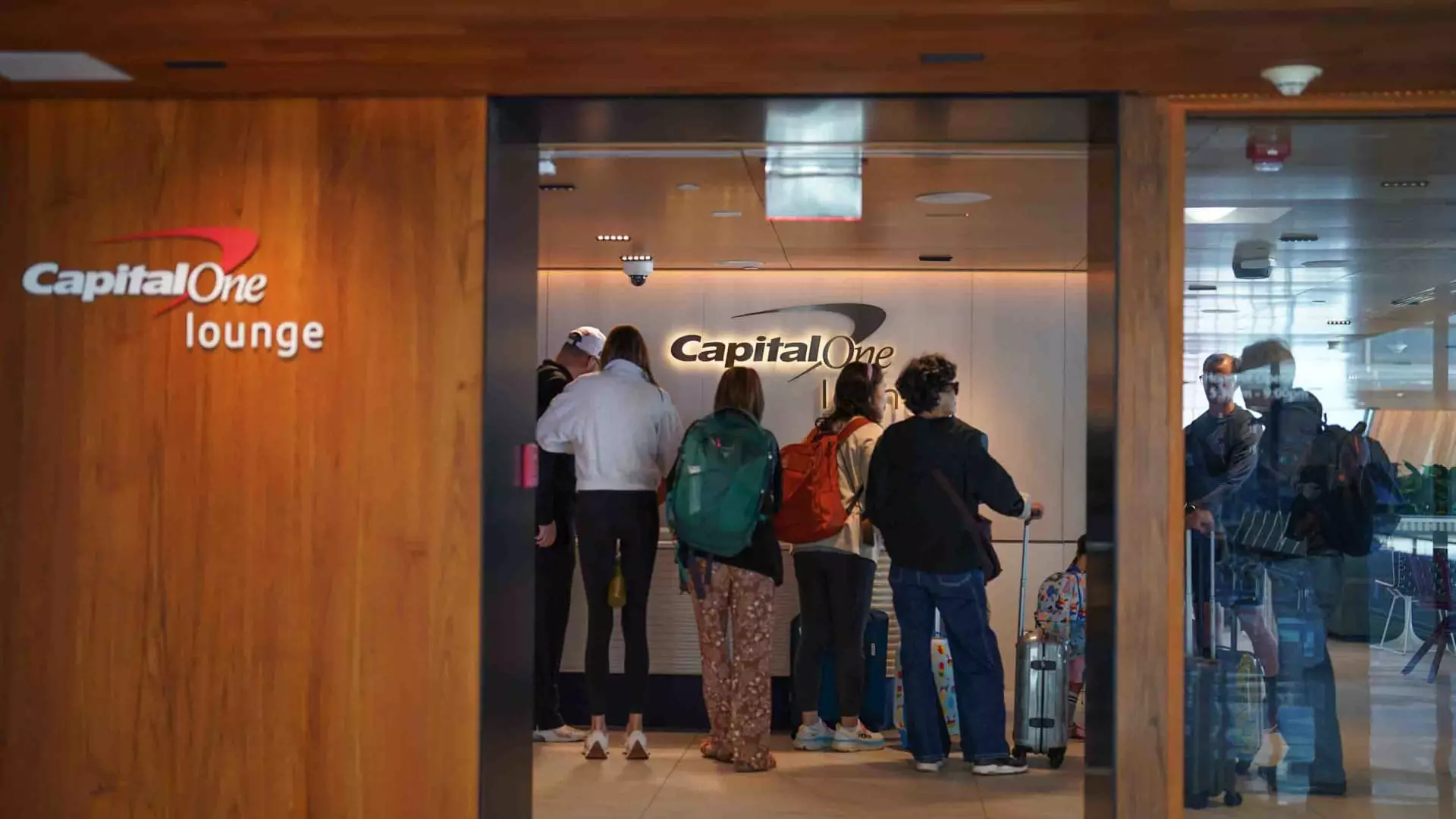While airline ticket prices seem to be taking a dip, the costs associated with enjoying luxuries at the airport are skyrocketing, particularly concerning airport lounges. The recent change in policy by Capital One underscores an unsettling trend: companies capitalizing on consumer demand under the guise of enhancing the customer experience, yet, in reality, they are pushing traveler expenses into the stratosphere. No longer is it a simple matter of enjoying a complimentary guest with your notions of luxury; instead, patrons are confronted with substantial fees to ensure their loved ones can enjoy these once-exclusive spaces.
Capital One’s announcement that Venture X and Venture X Business cardholders will face hefty fees for guest access epitomizes this shift. Slapping a $125 annual fee just to allow a friend or family member inside a lounge hinders the very essence of what these lounges are meant to provide: relaxation and shared experiences. Rather than fostering a sense of community among travelers, these measures seem to alienate and measure the worth of access based on one’s spending ability. This new structure raises critical questions about the intersection of privilege and everyday travel.
Concealed Discontent Amidst Exclusive Experiences
The words of Capital One regarding their decision to reduce guest access reflect the broader issue of corporate popularity surpassing capacity. “It is important to us that we maintain a great airport lounge experience,” they claim, but this rings hollow when viewing the financial barriers now imposed. The assertion that maintaining quality should come at the expense of accessibility for many users is far from reassuring; it lays bare a concealed discontent among patrons who once felt welcomed and valued.
Interestingly, the only way for primary cardholders to regain their access to complimentary guests without additional charges is by spending an eye-watering $75,000 annually. This staggering threshold breaks the illusion of a comfortable airport experience for the average traveler, segregating the flying public into elitist classes defined by their fiscal prowess. The reality is that travel is increasingly becoming a game of exclusivity, with credit cards as the gatekeepers of access, pushing inclusive experiences further away from everyday fliers.
The Crowded Reality of a ‘Premium’ Experience
The frustrations extend beyond Capital One, as heavyweights like American Express and JPMorgan Chase implement similar restrictive measures towards their lounge access. The notion that lounges have become victims of their own success echoes a bitter truth: as demand skyrockets, the level of exclusivity that originally defined these spaces has dissipated. The lounges, purportedly designed for tranquility, are instead morphing into hubbub-packed zones akin to crowded terminals. The irony of seeking solace amidst the chaos of travel only to be met with more chaos feels almost cruel.
Even airlines are succumbing to this trend, raising fees tied to lounge access while expanding their real estate for premium traveling experiences. Delta, for instance, has dramatically overhauled its access policies to manage demand, yet this feels less like customer service and more like a maneuver telegraphing the rift within the industry—where fliers now face barriers versus invitations. Passengers are left to ponder whether these adjustments are genuinely about comfort or if they merely reflect a corporate trend towards profit optimization at the cost of community.
Rethinking the Travel Experience
As a self-proclaimed center-wing liberal, it’s disheartening to witness the commodification of travel experiences. The consistent escalation of fees for basic pleasantries, which were once included with travel perks, betrays a troubling direction in our society. The travel experience should foster connection and ease rather than create additional layers of division and financial strain. The aviation industry must consider what it means to provide a quality service oriented towards the customer rather than one driven primarily by profit.
The steps taken by Capital One and other credit card companies regarding airport lounges necessitate a passionate public response. Our collective voices should advocate for an aerial landscape where inclusivity thrives—not just in the boarding process but across the entire travel journey, including those sacred lounges meant to comfort and rejuvenate weary travelers. As consumer power swells, so too should our demand for a travel experience that doesn’t extract a toll on our wallets—or our sense of belonging.

